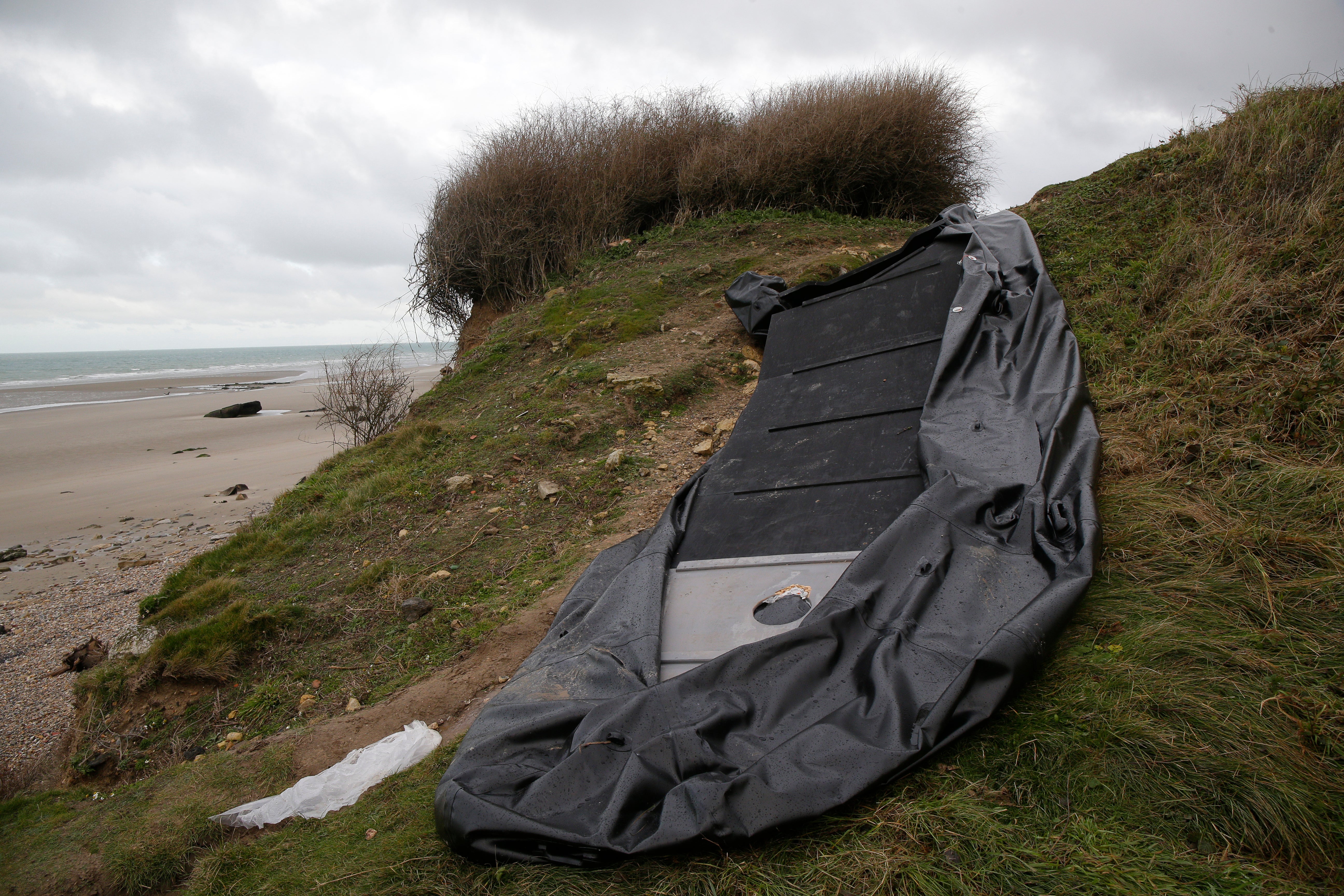UK panel asks govt to scrap plan to turn back migrant boats
A U.K. parliamentary committee has criticized government plans to deter migrants from trying to reach Britain in small boats, saying they will endanger lives without stopping dangerous journeys like the one that killed 27 people last week

Your support helps us to tell the story
From reproductive rights to climate change to Big Tech, The Independent is on the ground when the story is developing. Whether it's investigating the financials of Elon Musk's pro-Trump PAC or producing our latest documentary, 'The A Word', which shines a light on the American women fighting for reproductive rights, we know how important it is to parse out the facts from the messaging.
At such a critical moment in US history, we need reporters on the ground. Your donation allows us to keep sending journalists to speak to both sides of the story.
The Independent is trusted by Americans across the entire political spectrum. And unlike many other quality news outlets, we choose not to lock Americans out of our reporting and analysis with paywalls. We believe quality journalism should be available to everyone, paid for by those who can afford it.
Your support makes all the difference.A U.K. parliamentary committee on Wednesday criticized government plans to deter migrants from trying to reach Britain in small boats, saying the measures will endanger lives without stopping dangerous journeys like the one that killed 27 people last week.
British Prime Minister Boris Johnson has proposed legislation that would give authorities patrolling the English Channel the power to turn away boats carrying migrants. The Nationality and Borders Bill would also make it more difficult for people who enter the country illegally to claim asylum and allow asylum-seekers to be screened abroad.
But the Joint Committee on Human Rights a cross-party panel that includes members from both houses of Parliament, said Wednesday that “a policy of pushbacks” would probably conflict with international human rights law and maritime law.
“Pushbacks are known to endanger lives at sea,” the committee said in a report. “This is even more so when dealing with people on small, unseaworthy vessels, in a busy shipping lane, often with rough waters, without appropriate lifesaving equipment, as is the case for migrants in small boats in the Channel.”
The debate comes less than a week after 27 people died when an overcrowded inflatable boat sank in the waters between Britain and France the deadliest migration accident ever recorded on the treacherous crossing. A survivor says the migrants made emergency calls to both British and French authorities, but both sides told them to call the other because the boat was in the other country’s territorial waters.
More than 25,000 people have reached Britain on small boats this year, up from 8,500 in 2020 and just 300 in 2018, heaping pressure on Johnson and his Conservative government to intervene.
Johnson says the Nationality and Borders Bill now making its way through Parliament will stem the tide by undercutting the business model of people smugglers who charge thousands of pounds (dollars) to make the illegal crossing.
The Home Office which oversees border enforcement, said it is seeking to “prevent further loss of life at sea” and rejected the idea that government proposals violate international law.
“We continue to evaluate and test a range of safe and legal options to find ways of stopping small boats making this dangerous and unnecessary journey,” the Home Office said. “These all comply and are delivered in accordance with both domestic and international law.”
But human rights activists disagree, saying the government’s policies put lives at risk and will do little to deter migrants.
One survivors of last week’s disaster, Mohammed Ibrahim Zada, a Kurdish migrant from Iran, told the Kurdish Rudaw media that both France and Britain ignored their pleas for help when their boat began taking on water.
“We called the French police and asked them to help us,’’ he said. “We sent our location to the French police, and they said, you are in British waters. So, we were inside British waters and called the British police for help, but they said call the French police.’’
Another survivor, Mohamed Isa Omar, told the BBC that he heard at least one passenger make contact with U.K. authorities as the boat sank.
“Our mobiles were already in the water,” Omar said. “But one of us had his mobile still working, he called, and the (British) authorities told him to send the location. But before he does that, the mobile went into the water, too, and we could not send anything.’’
Britain’s Home Office rejected the suggestion that U.K. authorities had ignored the mayday appeal, saying they responded to every call received on the day of the disaster.
The government’s new borders bill also proposes to treat asylum-seekers who sneak into Britain more harshly than those who use the few available authorized routes for refugees. The human rights committee said that is inconsistent with the U. N. Refugee Convention, which “explicitly prohibits refugees being penalized for unauthorized entry.”
Labour lawmaker Harriet Harman who chairs the committee, said the government’s plans wouldn’t deter crossings and would make the frigid seas even more dangerous.
“Current failures in the immigration and asylum system cannot be remedied by harsher penalties and more dangerous enforcement action,” she said.
—-
Salar Salim in Irbil, Iraq contributed.
___
Follow all AP stories on global migration at https://apnews.com/hub/migration.